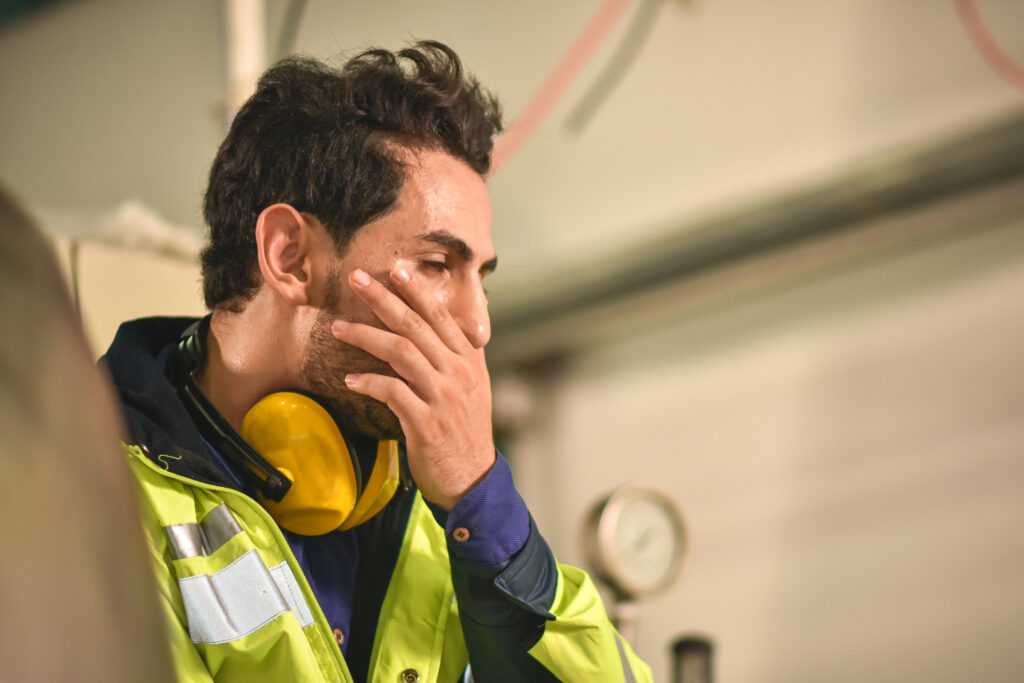
First responders—firefighters, police officers, EMTs, and others—carry the weight of the world in their everyday work. If you’re in one of these noble professions, you know that you’ve been charged to show up when others are running away, provide calm in the chaos, and bear witness to things most people never have to imagine.
The pressure of being a first responder is immense, and over time, it can take a toll on your mental health. Feeling overwhelmed, tense, or emotionally drained in this line of work is extremely common and completely normal.
Anxiety is a common challenge among first responders, and it’s nothing to be ashamed of. In fact, recognizing that you need help and seeking support is a brave step.
At Alvarado Parkway Institute, we understand the unique challenges you face, and we’ve developed programs specifically designed to help. Our anxiety treatment program and first responders treatment program can help you regain a sense of balance and control.
What Does Anxiety Look Like in First Responders?
Anxiety doesn’t always show up the same way for everyone, but for first responders, it often stems from repeated exposure to high-stress situations. Over time, these experiences can build up, making it harder to move on or “shake it off” once your shift ends.
You might find yourself feeling constantly on edge, even when you’re at home. Maybe your mind races with worst-case scenarios, or you have trouble sleeping because your body can’t seem to calm down. You may even avoid certain calls, scenes, or conversations because they bring up emotions you’re not ready to face.
Other signs of anxiety include:
- Racing thoughts or persistent worry
- Difficulty focusing or recalling things
- Irritability or a short temper
- Physical symptoms like muscle tension, rapid heartbeat, or stomach issues
- Trouble sleeping or nightmares
- Feeling detached or emotionally numb
When anxiety starts manifesting in this way, it can begin to interfere with your ability to do the job you once loved.
The Impact of Anxiety on First Responders’ Work and Health
Unfortunately, anxiety won’t just go away on its own. Slowly but surely, it can erode your sense of well-being, your relationships, and your physical health. On the job, anxiety might lead to burnout, slower reaction times, or difficulties making decisions under pressure. Against your better judgment, you might start withdrawing from coworkers or avoiding certain situations altogether.
At home, you may find yourself suddenly snapping at your partner, isolating yourself from friends, or struggling to be present with your kids. Left untreated, this condition can lead to depression, substance use, and chronic health problems like high blood pressure or heart disease. It’s more serious than most people think.
You don’t have to wait until things feel unmanageable to ask for help. Paying attention to the signs of anxiety and acting upon them is an important way to care for yourself. And it’s something you deserve.
How Our First Responders Treatment Program Can Help
The first responders treatment program was created at Alvarado Parkway Institute to provide compassionate, specialized care in an environment where those on the front lines can get the treatment they need to thrive.
Our team is experienced in working with law enforcement officers, firefighters, paramedics, and other first responders. We know how critical confidentiality is and provide a safe space where you can speak freely without fear of judgment or professional repercussions.
Whether you’re struggling with anxiety, PTSD, depression, or other stress-related challenges, we’ll customize your treatment around your needs. We offer individual therapy, group sessions with other first responders, evidence-based practices, and holistic care to help you find relief and build resilience as you step back into the field.
Strategies for Managing Anxiety on the Job and at Home
Along with professional treatment, there are also daily strategies that can make a big difference in how you manage your anxiety. These tools are woven into our approach:
- Mindfulness and breathing techniques: Learning to stay grounded in the present moment can help you calm your body and mind, even in high-stress situations. Controlled breathing can help regulate your nervous system and reduce panic or racing thoughts when you need to remain calm and collected.
- Sleep, exercise, and nutrition: It might sound basic, but prioritizing rest, movement, and a balanced diet helps your brain and body function more effectively and recover from stress more quickly.
- Boundaries and time off: As a first responder, you give so much of yourself to others. Taking regular time off, unplugging when you’re off-duty, and setting boundaries around your availability are key to protecting your mental health.
- Cognitive behavioral therapy (CBT): This popular, evidence-based form of therapy helps you identify and reframe negative thought patterns, making it easier to approach challenges with a clearer mindset. CBT is a core part of our anxiety treatment program, along with other therapeutic modalities.
At Alvarado Parkway Institute, we teach you how to use these strategies in real life. You’ll learn what works for you so you can feel more in control no matter what your job throws your way.
Anxiety Treatment for First Responders in San Diego
If you’re a first responder in San Diego and anxiety is starting to interfere with your work, your home life, and your overall health, please know this: Help is available. Our compassionate team at Alvarado Parkway Institute is ready to listen, understand, and help you regain control of your mental health so you can keep showing up for others without losing yourself. Contact us today to learn more about our services.
